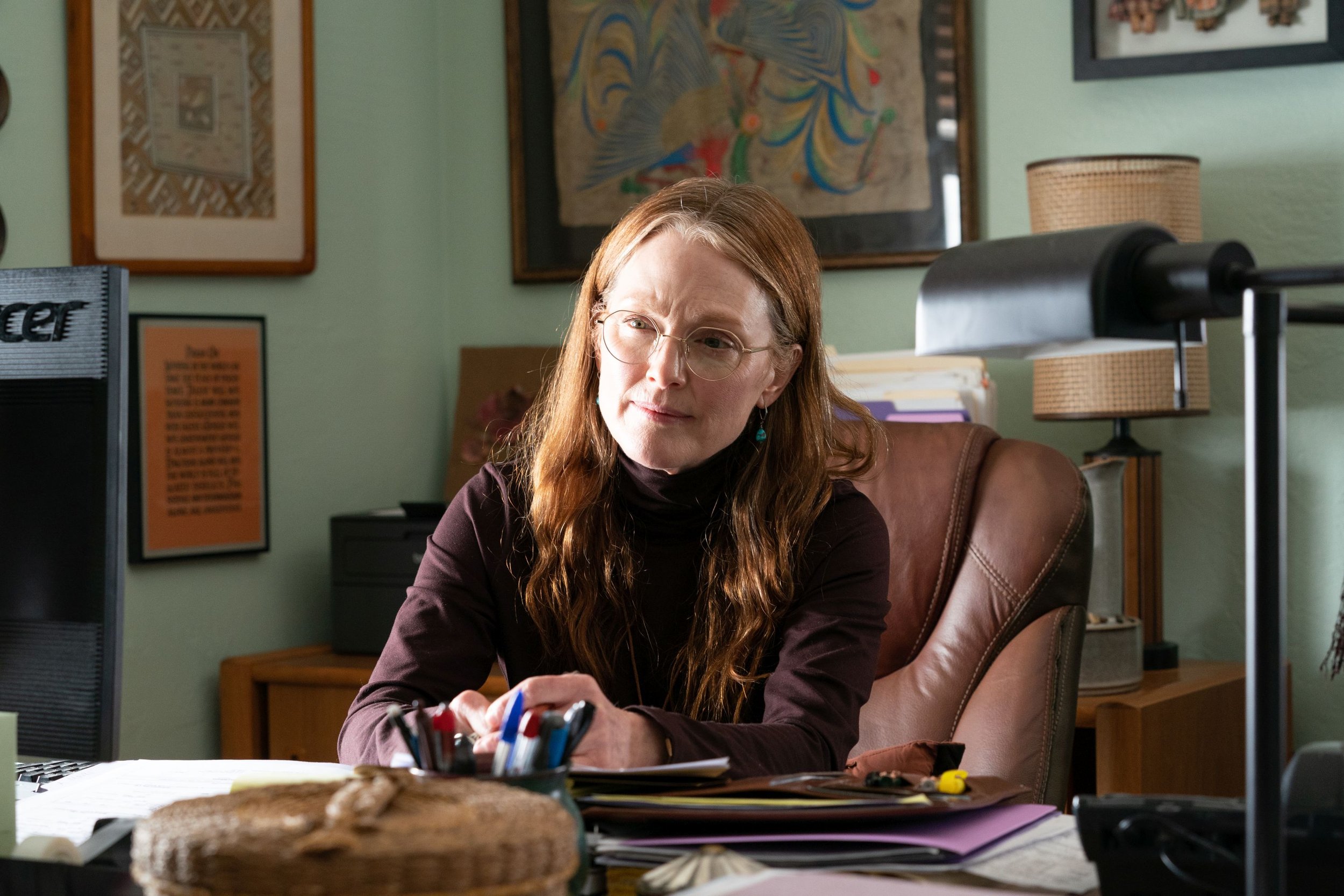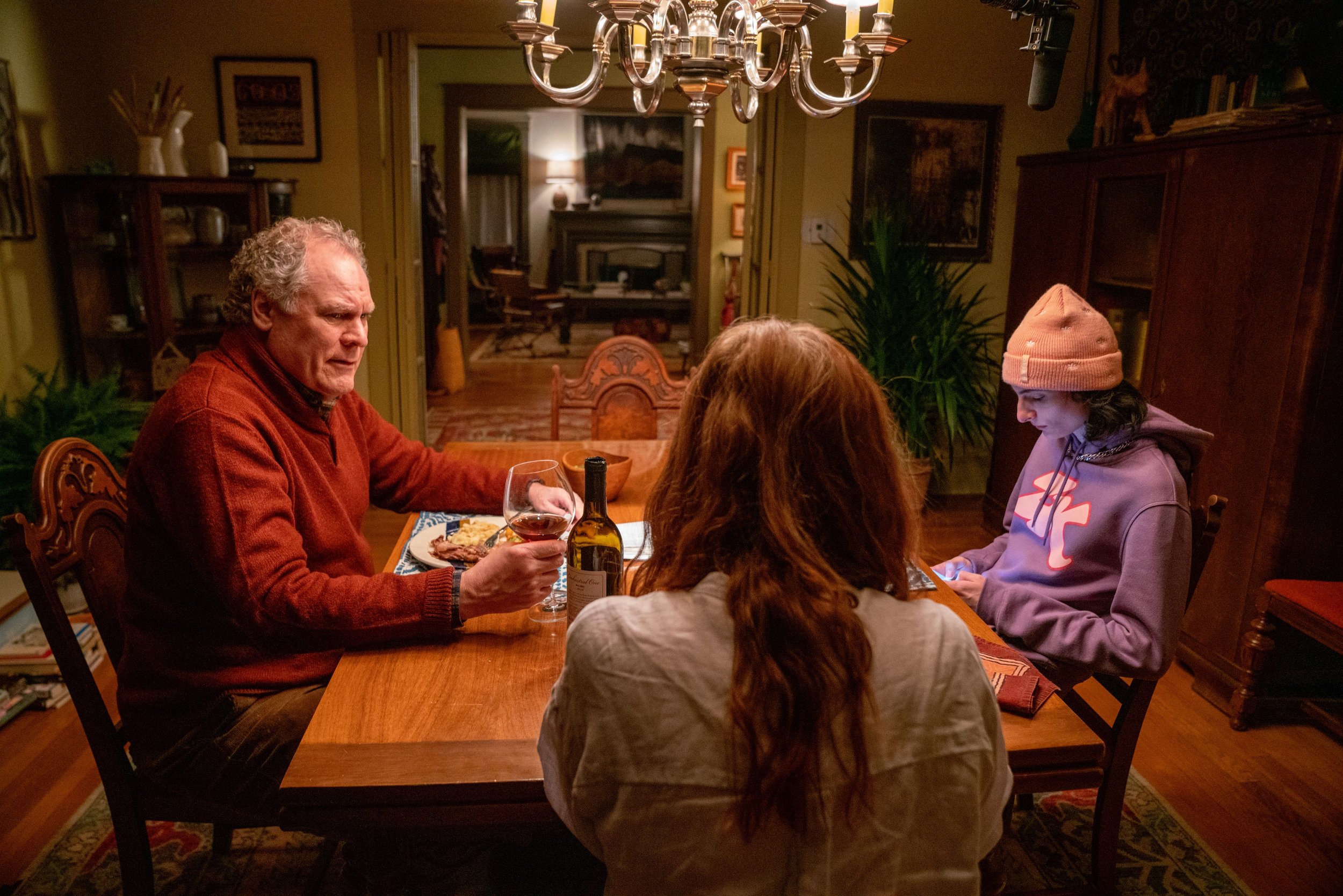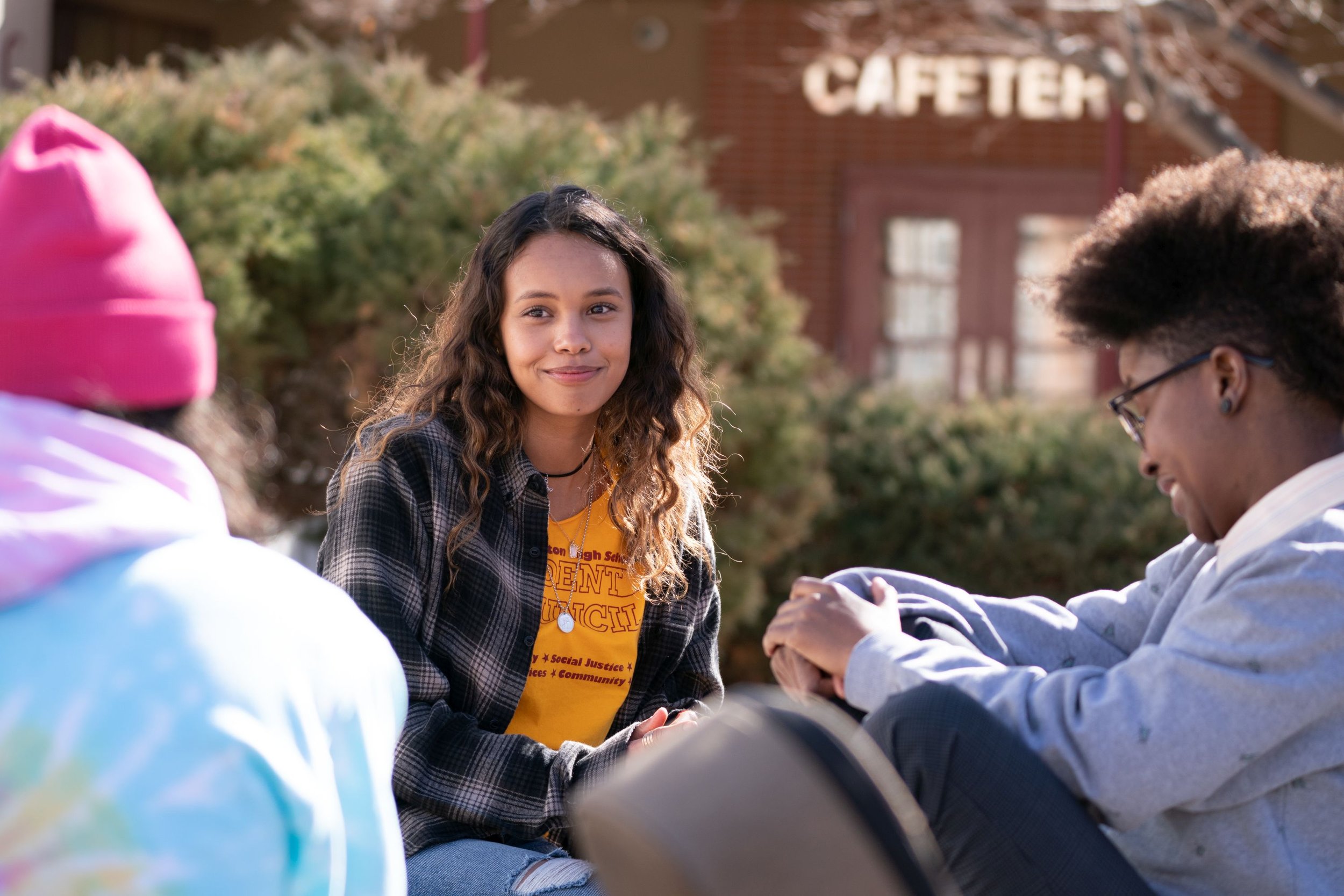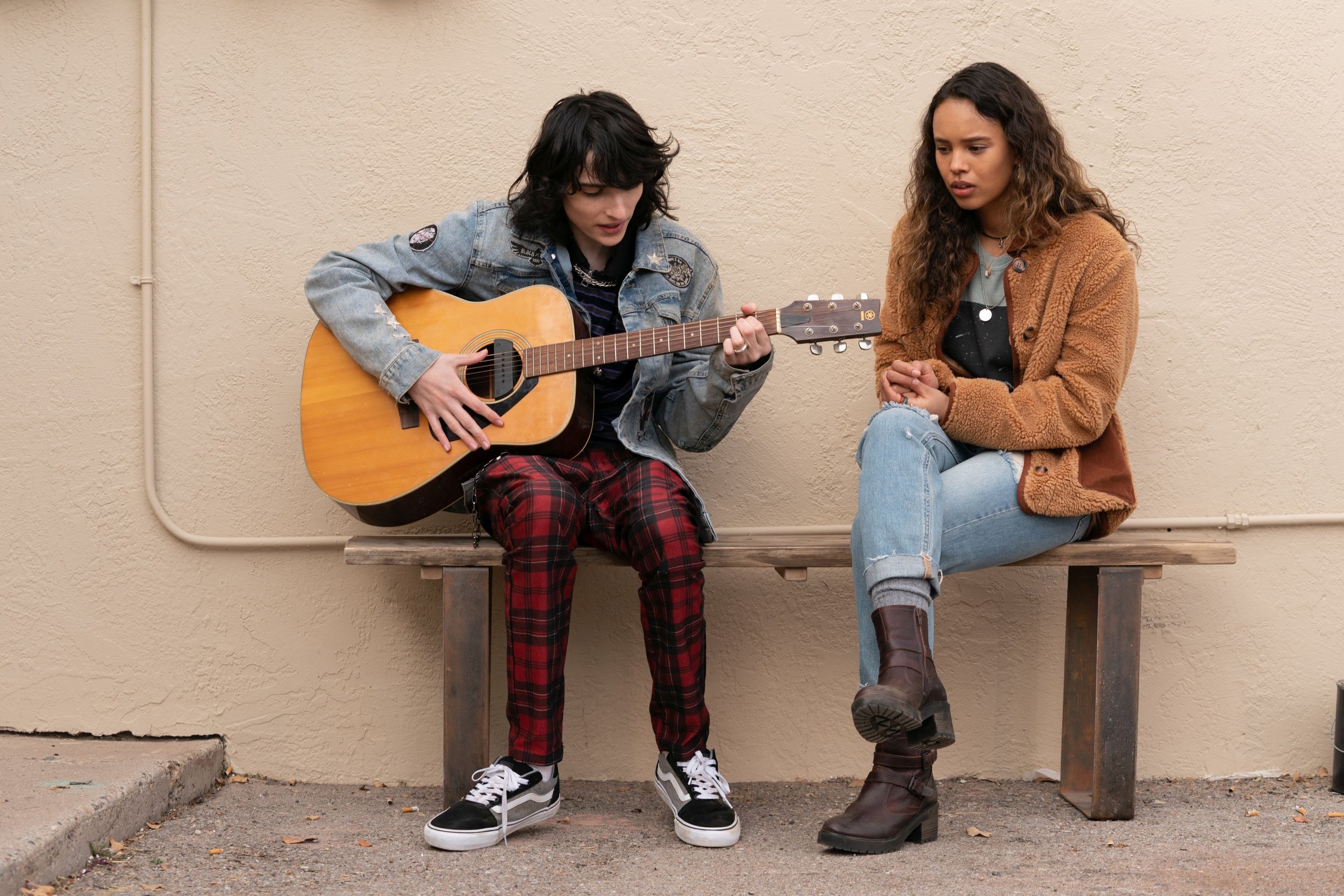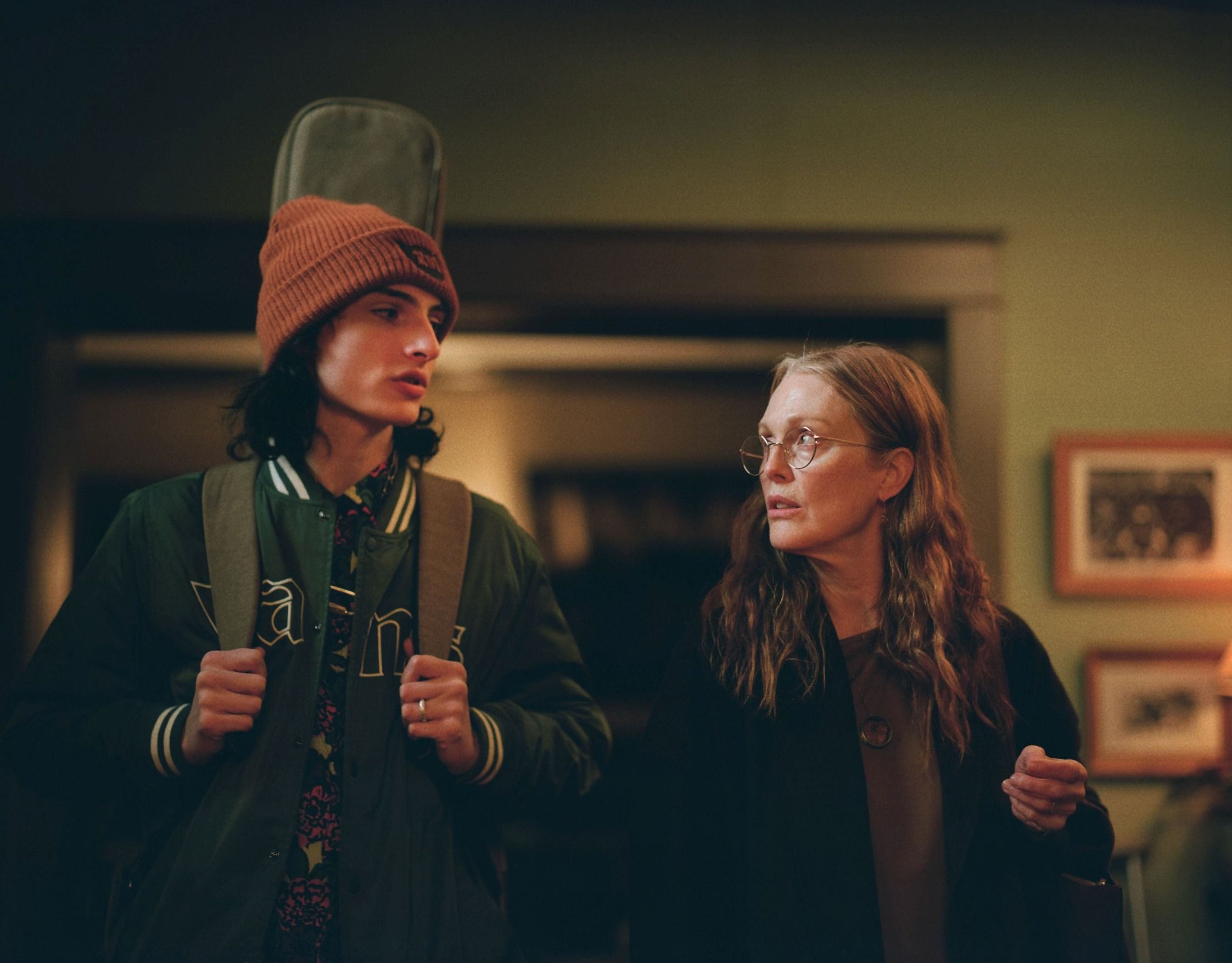MOVIE REVIEW: When You Finish Saving the World
WHEN YOU FINISH SAVING THE WORLD– 2 STARS
Front and center in When You Finish Saving the World is Finn Wolfhard’s high school-aged wannabe YouTube vlogger Ziggy Katz. He finds himself to be a member of the currently en vogue “social justice warrior” crowd. While each generation has had their own version and label of this, the social media-fueled SJWs of today stand apart with their louder outlets and larger audience reach compared to their predecessors. No matter the era, these types are a special mix of youthful invincibility, privileged entitlement, divergent ethos, and sometimes misguided hills-to-die-on. As a film viewer or as a general bystander, you either admire their spirit or you find them insufferable.
LESSON #1: THE TROUBLE WITH SOCIAL JUSTICE WARRIORS– Here’s a piece of the current dilemma with social justice warriors. Activism is great for discovering principles and the platforms on which take stands have never been more accessible for mass organization. Citizens with similar proclivities have the means to “find their people” with the swipe of a device. However, when a mindset is created to where every topic, issue, or conflict in the world has to matter and needs your side-choosing opinion, the volume of it all distracts and overflows one’s mental and emotional cups. All of their external efforts frequently take away from the personal ones in their actual lives. How about fixing the things closest to you instead of the things far away?
That’s the obstacle very fitting of the title When You Finish Saving the World. The cloud-hopping Ziggy is detached from his roots. Moreover, when the bystander trying to figure out between social justice warrior admiration or intolerance is his mother Evelyn, played by Oscar winner Julianne Moore, the trials, tribulations, and butted heads become more difficult. Jesse Eisenberg, making his feature directorial debut, has offered characters with plenty to say but never enough to say to each other.
The Katzs live in the Midwestern crossroads of Bloomington, Indiana. Ziggy hides away in his bedroom retrofitted as a recording studio for his “classic folk rock with alternative influences” songs streamed on YouTube for international fans who upvote and tip his work phantom riches. This low-level recognition causes him to brag on his numbers and so-called influence to anyone who will listen, including Lila (Alisha Boe of Thirteen Reasons Why), the even more knowledgeable and involved SJW classmate he’s trying to impress. He would love to shoot his shot for her attention.
The family Ziggy avoids includes his intellectual retiree father Roger (veteran character actor Jay O. Sanders) reading books all day and the busy default parent Evelyn. Her time and effort are primarily committed to the successful Spruce Haven community shelter she built from the ground up. Recently, she has welcomed a new troubled family of a diligent teen named Kyle (Billy Bryk of Ghostbusters: Afterlife) to Spruce Haven. Seeing more approachable and admirable qualities in him than in Ziggy, Evelyn begins to take Kyle under her wing of concern and aid.
Being devoted to such a selfless endeavor as a sheltering community center likely means Evelyn has some standout social justice warrior values of her own. Go ahead and say it. There’s a former hippy or daughter of a hippy under those large wire-framed glasses and subtle gray-streaked hair. One would think she and her rebellious son would be cut from the same cloth. Deep down, they are, but the generation gap proves otherwise and shoves them apart.
LESSON #2: CLASHING VALUES OF DIFFERENT GENERATIONS– When You Finish Saving the World attempts to dig deep into moral differences between mother and son. Evelyn’s desire for dry properness in everything grates against the mouthy and frantic Ziggy. She is mystified by his artistry and questions the endgame. Furthermore, playing the somewhat inflexible pariah, Evelyn calls politics a “shortcut to sound intelligent” and fails to see any true struggle or impressive sincerity in the Ziggy compared to Kyle.
The presence of Julianne Moore is never going to sink a movie. The same cannot be said of Finn Wolfhard. Representing the politically-minded Millennials, Wolfhard feels like he’s doing what Evelyn accuses Ziggy of, and that’s jumping into conversations he knows nothing about. Call it scripted wisdom for Evelyn matching the equivalent real-life trait within Moore, but her character’s stumps always come through taller and more substantial than those of Wolfhard and Ziggy. Battle-tested advocacy beats selfish and entry-level awareness in a movie where a reversal would be the more interesting result to explore.
Eisenberg’s film spends the bulk of its time tip-toeing around everyone’s dismissive treatment of one another and effusive posturing. We encounter the trenches of conflict and see the missing grace. The parent needs to respect a new era of artistic self-expression, and the young adult needs to comprehend real adversity. We know the goal is to inject some form of caring back into embattled family members, but, as it turns out, no one is worthy of supportive applause.
When You Finish Saving the World stops right when an interesting alignment of merits could possibly begin. That ambiguous final moment of discovered courage and acceptance ends the journey at the point it should have begun. What you’re left with is that same decision mentioned earlier of deciding between bearable and unbearable feelings about incensed and outspoken people. Too often, the latter impression wins out.
LOGO DESIGNED BY MEENTS ILLUSTRATED (#1091)


